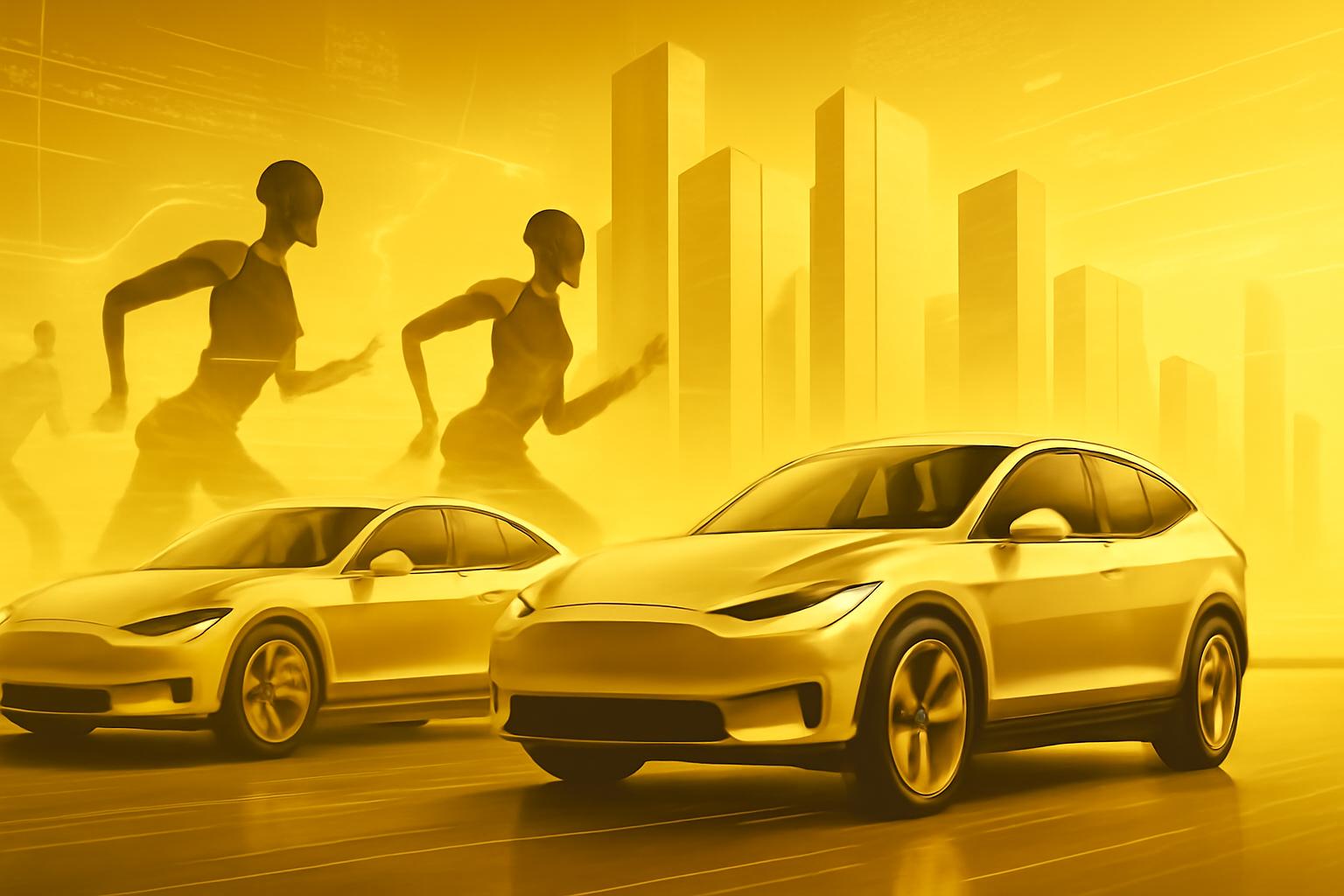Tesla’s ‘Robot Army’ Argument Sparks Debate
Tesla CEO Elon Musk recently presented a striking justification for his proposed $1 trillion stock compensation package during the company’s Q3 2025 earnings call. Central to his argument was the need for strong influence over Tesla’s growing AI robotics initiative, specifically the Optimus robot program.
“My biggest concern line: If we build this robot army, do I have a strong influence over that robot army? I don’t feel comfortable building a robot army if I don’t have a strong influence,” Musk stated emphatically.
The package, awaiting shareholder approval on November 6, would grant Musk up to 12% of Tesla’s stock if the company reaches a market valuation of $8.6 trillion. Despite proxy advisory firms recommending rejection, Musk’s rhetoric focused on control and power rather than solely financial gain.
General Motors Terminates BrightDrop EV Van Program
After four years, General Motors has discontinued its BrightDrop electric van initiative, acknowledging a slower-than-expected market uptake. Large inventories of unsold vans have accumulated across Michigan and Canada, highlighting the program’s commercial challenges. Insider sources attribute BrightDrop’s failure not to the product appeal—fleet owners reportedly value the vans—but to insufficient infrastructure support. GM’s strategy relied heavily on external partnerships for depot charging rather than integrating charging solutions directly with fleet purchases, deterring potential customers and complicating operations.
Redwood Materials Raises $350M to Expand Energy Storage for AI Data Centers
Redwood Materials secured $350 million in Series E funding, led by Eclipse and including a strategic investment from Nvidia’s NVentures. Valued around $6 billion, this capital infusion supports the company’s new energy storage business, which repurposes retired EV batteries to power AI data centers and industrial sites through renewable energy integration. This innovative approach extends the lifecycle of EV batteries, providing sustainable and cost-effective energy solutions aligned with increasing AI infrastructure demands.
GM Unveils New EV Architecture Integrating AI and Advanced Computing
At a recent New York event, General Motors announced plans to overhaul the electrical and computational frameworks of its upcoming vehicles. Launching with the Cadillac Escalade IQ in 2028, the new platform will enable faster software updates, enhanced automated driving capabilities including eyes-off driving, and a proprietary conversational AI assistant. This strategic move positions GM to compete in the evolving landscape of connected and autonomous electric vehicles.
Tariffs, Supply Chain, and Market Pressures Weigh on Automakers
The automotive sector is navigating significant headwinds including tariffs and the expiration of federal EV tax credits. GM projects a $2.3 billion profit hit from tariffs in 2025, while Ford anticipates a $2 billion impact. Both companies have expressed cautious optimism following tariff relief extensions on parts sourced from Canada and Mexico. Production adjustments continue as Ford pauses F-150 Lightning manufacturing to prioritize gas and hybrid models amid supplier disruptions. GM announced layoffs at its Warren Tech Center and plans to discontinue Apple CarPlay and Android Auto support, signaling a pivot toward proprietary software ecosystems.
Additional Industry Developments
- Rivian cuts 600 jobs in its third workforce reduction this year and appoints founder RJ Scaringe as chief marketing officer.
- Rivian settles a $250 million shareholder lawsuit related to 2022 price hikes on its R1 vehicles.
- Rivian’s micromobility spinout, Also, unveils new modular pedal-assist e-bikes and quad vehicles, including an Amazon delivery van variant.
- The National Highway Traffic Safety Administration investigates a Waymo autonomous vehicle incident involving a stopped school bus in Atlanta.
FinOracleAI — Market View
Elon Musk’s framing of Tesla’s stock compensation as control over a ‘robot army’ underscores the increasing strategic importance of AI-driven robotics in the automotive sector. However, skepticism remains high among investors and proxy advisors regarding the valuation and governance implications of such packages.
- Opportunities: Continued innovation in AI robotics and energy storage can drive competitive advantages for automakers and tech firms.
- Risks: Market resistance to infrastructure gaps, regulatory scrutiny, and supply chain disruptions may hamper EV adoption and profitability.
- Strategic software and hardware integration efforts are critical for future vehicle competitiveness.
- Investor caution around governance and compensation packages may influence shareholder dynamics and company valuations.
Impact: Neutral to cautiously positive. While AI and robotics integration present growth vectors, ongoing operational and market challenges temper near-term optimism.













